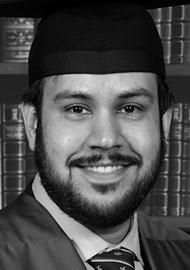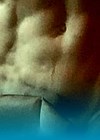As an ST8 trainee in paediatric general surgery and urology, I had firmly decided on subspecialisation in paediatric urology. Whilst preparing for the dreaded final Annual Review of Competency Progression (ARCP), the all-important question of “What next?” came to the forefront. Fellowships were few and far between – one was even full until Summer 2026 (two years away!). One evening, I sat down to reflect on what the best use of this time would be and attempted to draft a ‘roadmap’ from Certificate of Completion of Training (CCT) to my eventual consultant post.
After some valuable mentorship, my aims were to upskill in endoscopic intervention including ureteroscopy, the management of kidney stones, and to learn how we can improve transitional care for our paediatric patients. I also wanted something on my CV that would make me stand out from the crowd and the best way to achieve the above was experience in adult urology. I therefore embarked upon a search for an adult urology post in lieu of what would have been my period of grace.
I secured a post at Frimley Health working at the Wexham Park and Heatherwood sites. It was a job close to home with what I had heard was an extremely supportive consultant body, both of which were especially important to me. Training in paediatric surgery can only be described as ‘geographically diverse’ and in my final year, I had lived away from my wife and two young children, therefore being close to home was vital. The thought of moving back to adult medicine after 10 years of pure paediatrics was daunting and the presence of a friendly ‘hands on’ consultant body gave me the reassurance and confidence I needed to achieve the most in the short space of time.

Figure 1: The KARL STORZ Urology Simulation Course.
Simulation has played a vital role in education and training in recent times. Within a week of starting, I attended a simulation session organised by the Wexham Park Hospital Urology Department at the KARL STORZ Training and Technology Centre in Slough (Figure 2). This course covered cystoscopy, ureteroscopy and transurethral resection of bladder tumour (TURBT). This high-fidelity state of the art facility provided me with an introduction to the equipment so that I was able to hit the ground running in theatres. Around two months into my placement, I completed the Royal College of Surgeons (RCS) accredited Urological Emergencies Crash Course. I was awarded the first prize for the course exam quiz which demonstrates that underlying knowledge spans age groups. These courses enhanced my confidence which resulted in me being able to perform cases with supervising trainer scrubbed (STS) a lot quicker than if I had to learn these skills on the job. I took to most procedures like a duck to water and my logbook for the rotation is shown in Figure 2.

Figure 2: Operative Logbook (c.5 months’ work excluding annual leave / study leave). *O - observed, S-TS/TU - supervised trainer scrubbed/unscrubbed, P - performed, T - training a trainee.
The number of non-technical skills that we develop during training is immeasurable and fundamental in dealing with new challenges. For me, the fact that training had taught me how to deal with and manage the unknowns was the biggest asset I had. I adjusted to the new systems rapidly and flourished in getting cases into theatre, troubleshooting clinical problems, and trying to anticipate problems before they occurred.
The consultant presence in adult medicine has changed hugely since I completed my foundation training in 2013. The phrases which were once said to registrars such as “crack on” and “I’m sure you’ll be okay alone” are thankfully a thing of the past! Wexham Park urology patients receive a daily consultant ward round, including at the weekends, and consultants are always present in theatre lists for supervision and training. I would say that this made the experience enjoyable and comfortable with help on hand whenever I needed. I felt that every day was a school day, and I could ask anything I wanted at any time without fear of reprisal. Eventually, as demonstrated by my logbook, I was performing procedures with the consultant unscrubbed in the theatre complex always on hand if needed. This is a culture I would wish to practice and uphold in my future roles, and I would recommend anyone who is adjusting to a new role to ensure they have the required support network available.
There were however some huge clinical differences in the working environment between adult urology and paediatric surgery. The first and most interesting was that general surgery was a completely different department! This, coupled with the senior house office tier-ed support and patient management, meant that the role of an adult urology registrar is quite different and, in some ways, much nicer all round. During my adult urology placement, I noticed that quite often, a thorough history, bloods and cross-sectional imaging would have been performed before I was called. As a paediatric surgical registrar, you are often the first port of call for the emergency department and organisation of further investigations and management are required to be done yourself. Immediate cross-sectional imaging is rare!
My experience in adult urology made me realise that these are two very distinct worlds and jobs. Having experience of working in both gave me a sense of confidence that nothing else can. Adult urology trainees do often spend time in their local paediatric urology centre; however the converse is not as common. It is an experience that I would highly recommend for paediatric and adult urology trainees alike and you never know, sometimes you might find the grass is greener on the other side. In contrast to paediatric surgery, adult urology can come with a better work-life balance when on call. For me, the experience of working in adult urology helped reinforce the reasons I chose to exclusively treat paediatric patients. I realised I really came into my element when seeing a child on call, during a paediatric list, or in a clinic. I will be moving on to an RCS Paediatric Urology Fellowship and then hopefully to a consultant post.
Advice and reflections:
- Adult doctors want to treat adults; progression to subspecialist practice means that more clinicians wish to stay within their comfort zone and need to be supported when working beyond it.
- The volume is huge; the number of patients born with complex urological pathology transitioned seem to be minuscule in the chasm of adult patients needing urgent intervention (cancer, stones, fertility, etc).
- Given the above; paediatrics is very much under-represented in district general hospitals. I hope that the ongoing work of the ‘operational delivery networks’ means better relations, support, and opportunity to treat and transition more paediatric patients locally as this is what is needed.
- If you are interested in ‘crossing the divide’: know your strengths and what you can offer in exchange for reciprocal training opportunities. I conducted paediatric urology clinics at Wexham with the aim of decreasing waiting times. With enthusiasm and engagement in the department, you can create and benefit from educational exchanges, which can also help you understand the world of adult urology better. Giving back to those who teach and train you are essential and helps maintain the balance.
- Think outside the box and stand out from the crowd!
Declaration of competing interests: None declared.









